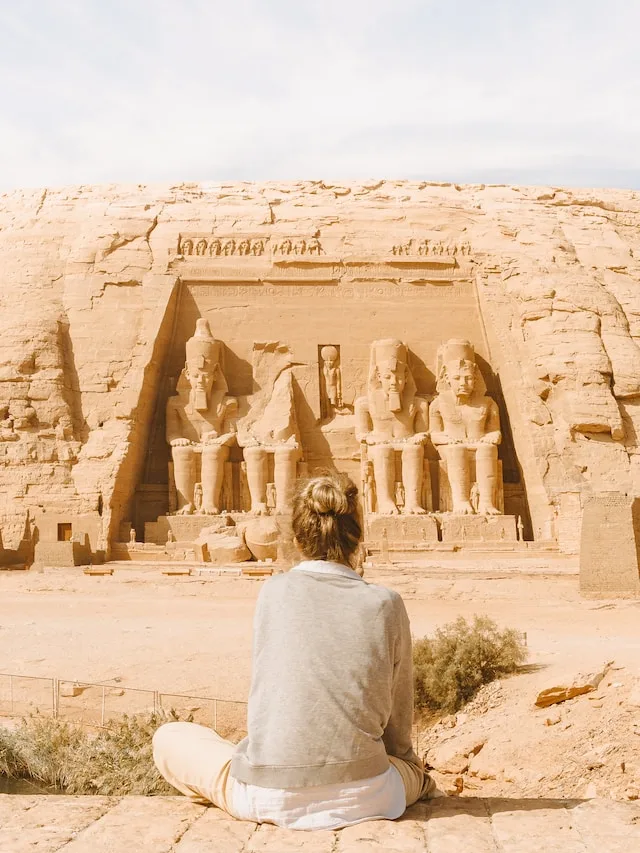Animal welfare policy & guideline
Experience the wonder of animals while supporting their welfare.
Egyptiva Tours is a responsible tours and travel company that is committed to the animal welfare in Egypt. Our policy is to ensure the safety and well-being of all animals that we encounter in our tours.
We understand that animals play an important role in the cultural heritage of Egypt. However, we also recognize that many animals are vulnerable and require protection. We believe in responsible tourism that integrates animal welfare into our operations and actions.
Our tours promote ethical animal interactions and we work with local communities and organizations to ensure proper animal welfare practices and conservation efforts. We do not promote activities that exploit or harm animals, such as elephant rides, camel racing or any animal shows.
We also ensure that our accommodation partners meet certain animal welfare standards and do not allow activities that promote animal cruelty or neglect. Our customers are encouraged to report any concerns related to animal welfare so that we can take appropriate actions.
Be the change!
We believe that responsible tourism requires us to prioritize animal welfare. We are committed to educating our clients and continually improving our operations to better protect and preserve the animals of Egypt.
practical ways to support animal welfare during your travels.

Photos
When photographing animals in Egypt, be responsible. Respect the animal’s space, avoid interfering with their natural habitat, and don’t take close-up shots that may stress or hurt them. Additionally, do not use flash photography as this can also cause distress to the animal. Remember, animals are not just props for photos; treat them with care and respect, and take photos ethically.

Feeding the animals
Sharing snacks with animals on trips can lead to overpopulation, resource depletion, and disease transmission. Instead, support local animal welfare initiatives in Egypt, which provide food, shelter, and veterinary care to animals in need. Remember to always prioritize the safety and wellbeing of both the animals and yourself when interacting with them.

Animal Products
Travelers should avoid buying souvenirs made from animal products, including ivory, and should not try to take any animal or plant specimens out of the country without proper documentation.

Animal welfare & safety
When traveling to Egypt, it is important to be aware of the native wildlife and to ensure their wellbeing. Some of the native animals include camels, horses, donkeys, and cats. It is important to use reputable tour operators that prioritize the welfare of animals. Tourists should also avoid riding on any animals that appear malnourished or injured.

Riding camels & horses
Riding camels and horses can be an enjoyable and exciting experience for travelers in Egypt. However, it is important to understand how to take care of these animals to ensure their well-being and safety during the ride. Firstly, ensure that the animal is healthy and has been well-cared for before booking the ride. Secondly, don’t overload the animal by carrying too much weight as it will affect their comfort and health. During the ride, be gentle and avoid any behavior that may cause harm to the animal.

Don't touch
Touching wild or street animals while traveling can be tempting can be tempting but can be dangerous due to their unfamiliarity with human interaction, potential diseases, and potential aggression.
It is important to avoid contact with these animals and not to feed them, as it can encourage them to approach humans and potentially become more of a nuisance.
If you do encounter wild or street animals while traveling, it is best to keep a safe distance and observe them from afar.
Help your furry friend
If you come across an injured or distressed animal, seek help from a local animal rescue or conservation organization.
Animal welfare guideline
Do...
- Research animal activities and attractions prior to participating.
- Support local animal conservation initiatives and ethical animal sanctuaries.
- Respect wildlife by observing them from a distance and not interfering with their natural behavior.
- Research animal welfare policies and laws in the country you are visiting.
- Report potential animal abuse or neglect to the appropriate authorities.
Don't...
- Don't participate in any activities that exploit or harm animals
- Don't support businesses that exploit animals for entertainment, such as circuses or bullfighting.
- Don't purchase souvenirs made from animal products.
- Don't feed wild animals.
- Don't Take photos with animals that have been drugged, or are tethered.

Subscribe To Egyptiva
Subscribing to our newsletter today will allow you to begin exploring our lovely globe! You can unsubscribe at any time.